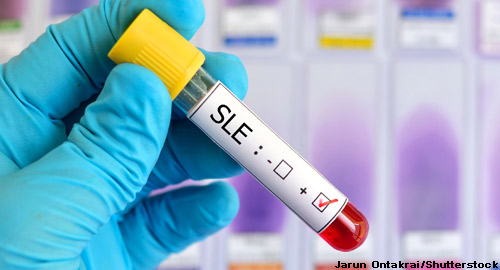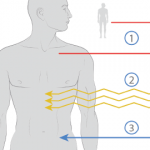 In September, pop sensation Selena Gomez announced via Instagram that she had undergone a kidney transplant as a result of damage from living with lupus. “Lupus continues to be very misunderstood, but progress is being made,” the star posted on the social media site.1
In September, pop sensation Selena Gomez announced via Instagram that she had undergone a kidney transplant as a result of damage from living with lupus. “Lupus continues to be very misunderstood, but progress is being made,” the star posted on the social media site.1
When rheumatologist Irene Blanco, MD, MS, heard about Ms. Gomez’s post, her first thought was about how brave the 25-year-old singer is. The thought was powerful enough for Dr. Blanco, who is an attending rheumatologist at Montefiore Medical Center in the Bronx, N.Y., to comment on Ms. Gomez’s post.
“I’m sure she put this out there to be an example to other patients with lupus, and it was brave,” says Dr. Blanco. “I thought what she did was wonderful. It really opened up the discussion: ‘If you need a transplant, you can still be in your 20s—young, beautiful—and live your life to the fullest—with a transplant. You can still bounce back; you can still release an album; you can still go on tour.’”
Awareness
Of course, most of the 1.5 million people in the U.S. living with lupus won’t release a musical album or go on tour in the next few years.2 But rheumatologists say that when an A-list celebrity, such as Selena Gomez, makes viral news because of their rheumatic disease, patients who similarly suffer can relate. Celebrity stories like these can become teachable moments for rheumatologists, who can prepare themselves for questions from patients who have heard the news about Ms. Gomez and others. Also, rheumatologic advocacy groups can use the news to promote awareness, which can help draw attention to a field in need of increased specialists, more research money and better public understanding.
It’s also a chance for rheumatologists to work with primary care physicians (PCPs) and help them learn more about lupus because many patients first dealing with rheumatic diseases first see a PCP. “These kinds of stories should say to [PCPs], ‘Hey, I need to get up to speed on lupus,’” says rheumatologist Susan Manzi, MD, MPH, chair of the Department of Medicine at Allegheny Health Network of Pittsburgh, and medical director of the Lupus Foundation of America. “More and more primary care physicians are coming to specialists and wanting to be educated about [lupus].”
Patient Communication
Patients may also have the same reaction and desire more education. Of course, Dr. Blanco, a member of the ACR’s Collaborative Initiatives’ Lupus Self-Management Workgroup, lays out potential outcomes for all of her patients. But it’s different when a patient sees those same outcomes cascade through their Facebook or Twitter feeds.
Social media comments open “a dialogue,” Dr. Blanco adds. When a patient sees that there’s somebody else who needed a transplant, it makes it a little more real for them. When “it’s somebody [you] kind of know, … you can put a face [with] a transplant … and it makes you think, ‘Am I at risk for this?’ ‘How do I avoid this?’ or, ‘Oh, wow, they got a transplant. Maybe it’s not so scary.’ It can really open to the door to a lot of hearty conversations [with patients].”
Dr. Manzi says she uses the news to connect with patients where they are.
“I use it as an opportunity to say, ‘You see how serious this disease can be? It’s important that we follow you closely. It’s important that you take your medication. It’s important that we monitor, because kidney failure can happen. Look at Selena Gomez,’” she says. “It’s a reminder to [patients to] take control of their own wellbeing. And I’m a real big believer … in self-awareness, self-education and taking control.”
Dr. Blanco says that when a celebrity has the courage to publicly reveal the details of treatment, it is a chance for rheumatologists to discuss self-management techniques with their patients. The ACR, through The Lupus Initiative, recently released tools and resources to help patients with self-management.
Patients are “grasping for things that can help put everything into context, center you and really point you in a direction to take charge,” Dr. Blanco says. “And that’s my focus when I talk about self-management with my patients: How to find a rheumatologist who you really connect with, how to have those hard conversations with your rheumatologist, what you should be talking about.”
Dr. Blanco says she tells patients, it’s OK to say, “’I’m overwhelmed. I don’t know where to start. You just talked for the past five minutes about my disease and my treatments, and I didn’t understand a word of what you just said.’ That’s OK. I appreciate when somebody says that.”
Although self-management is exactly that, it’s incumbent on the rheumatologist to guide the patient into how to do it successfully, Dr. Blanco adds. Using celebrity news is a powerful way to promote discussions that will empower patients with the knowledge they need to manage their disease.
“You don’t want the patient to become lost in the diagnosis,” she says. “You don’t want them to become, ‘Oh, that lupus patient.’ You want them to become this person—mom, wife, mother, partner—who happens to have lupus.”
And if Selena Gomez can talk about and live with her illness, why can’t someone else?
Richard Quinn is a freelance writer in New Jersey.
References
- Balsamini D. Selena Gomez’ kidney transplant inspires others. New York Post. 2017 Sep 23.
- The National Resource Center on Lupus. Lupus facts and statistics. 2017.


